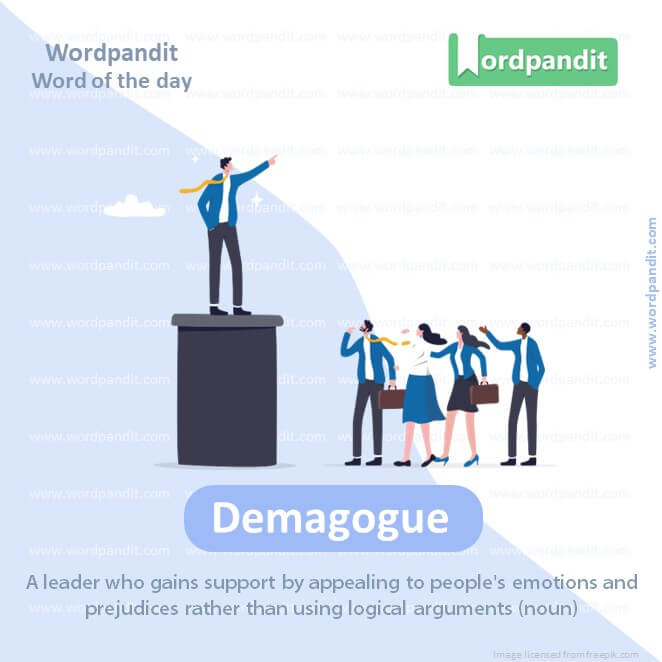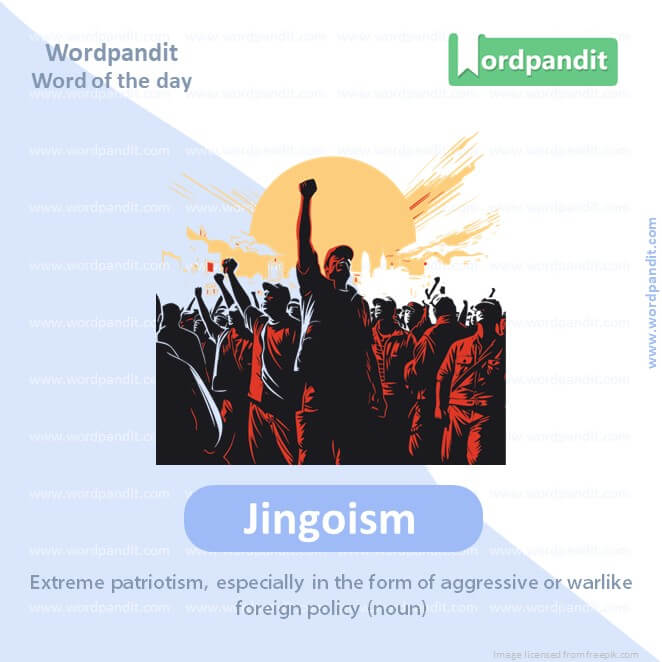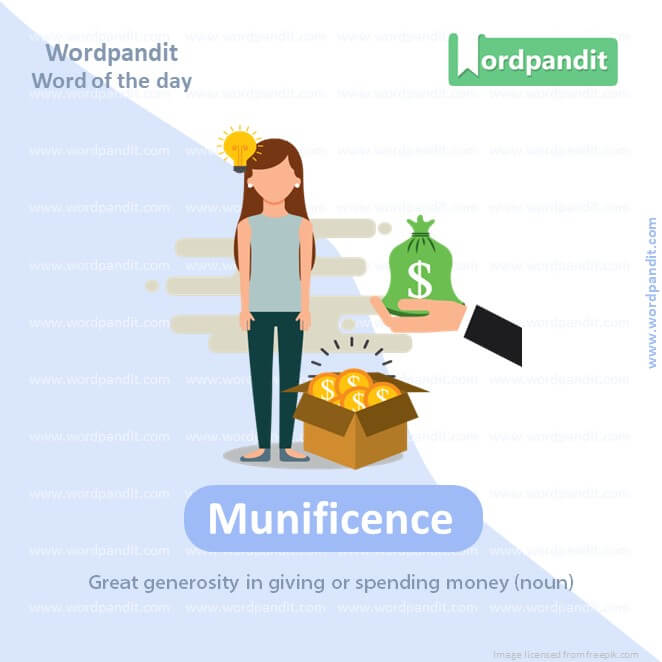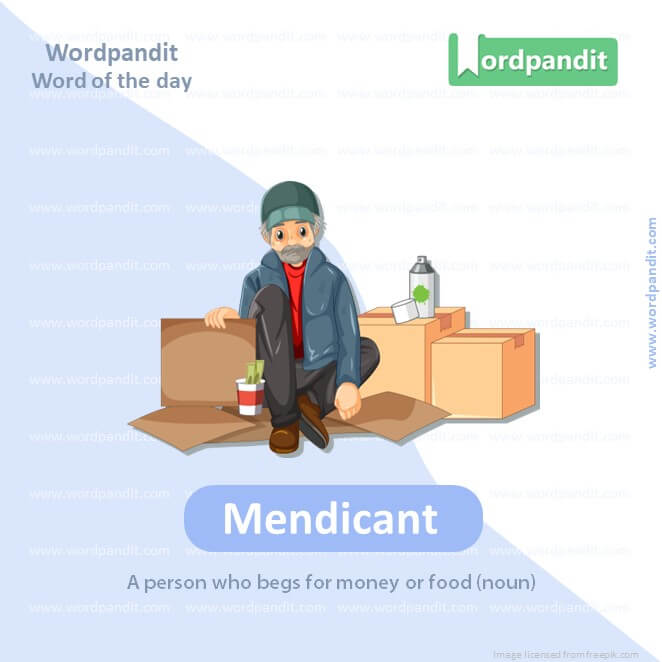Daily Vocabulary Words: List of Daily Used Words in Leading Indian Newspapers
Hi there. Welcome to this special section @ Wordpandit. Our endeavour here is straightforward: highlighting daily vocabulary words that you would come across in leading newspapers in the country. We have included the following newspapers in our selection:
• The Times of India
• The Economic Times
• Hindustan Times
• Mint
• Indian Express
We are putting in extensive work to develop your vocabulary. All you have to do is be regular with this section and check out this post daily. This is your repository of commonly used words; essentially, we are posting a list of daily used words. Hence, this has significant practical application as it teaches you words that are commonly used in leading publications mentioned above.
Visit the website daily to learn words from leading Indian newspapers.

WORD-1: Demagogue
CONTEXT: Critics argue that the rise of demagogues threatens the very fabric of Indian democracy.
SOURCE: Hindustan times
EXPLANATORY PARAGRAPH: Imagine there’s someone in your school who wants to be the class president. Instead of telling everyone nice plans, they say things just because they know it will make people like them, even if those things aren’t true. That person is like a demagogue. They say things to get power and make people follow them without thinking too much.
MEANING: A leader who gains support by appealing to people’s emotions and prejudices rather than using logical arguments. (noun)
PRONUNCIATION: Demuhgog
SYNONYMS: rabblerouser, agitator, provocateur, firebrand, inciter
USAGE EXAMPLES:
1. The politician was a demagogue who preyed on people’s fears.
2. Many consider him a demagogue because of his divisive speeches.
3. The rise of the demagogue worried many in the city.
4. She accused him of being a demagogue when he made false promises.

WORD-2: Jingoism
CONTEXT: the border dispute has often been a cause for the rise in jingoism on both sides, leading to unnecessary tensions.
SOURCE: Hindustan times
EXPLANATORY PARAGRAPH: Imagine if someone really, really likes their team and always says their team is the best, even if they are not. And they don’t like any other team at all. That’s like jingoism, but for one’s country. People with jingoism believe their country is the best no matter what and they don’t like other countries much.
MEANING: Extreme patriotism, especially in the form of aggressive or warlike foreign policy. (noun)
PRONUNCIATION: Jingoizm
SYNONYMS: nationalism, chauvinism, super patriotism, xenophobia, flagwaving
USAGE EXAMPLES:
1. The government’s jingoism was evident in its aggressive policies.
2. Many people were tired of the radio host’s jingoism.
3. The leader’s jingoism made him blind to the needs of other nations.
4. The campaign was full of jingoism, appealing to national pride.

WORD-3: Peregrination
CONTEXT: The Prime Minister’s peregrination to various countries is seen as a strategic move to strengthen bilateral ties.
SOURCE: Times of India
EXPLANATORY PARAGRAPH: Think about going on a really, really long walk or adventure, where you see many places and things. That’s like a peregrination. It’s a fancy word for a journey or trip, especially one that is long or special.
MEANING: A long journey or travel, especially on foot. (noun)
PRONUNCIATION: Perehgrinayshun
SYNONYMS: journey, voyage, expedition, trek, odyssey
USAGE EXAMPLES:
1. His peregrination across the country took six months.
2. The monk’s peregrination led him to many sacred sites.
3. They documented their peregrination in a travel journal.
4. She dreamed of a peregrination through the ancient cities.

WORD-4: Munificence
CONTEXT: he munificence of the industrialist in funding educational institutions was lauded by the community.
SOURCE: Indian express
EXPLANATORY PARAGRAPH: Imagine someone giving out lots of gifts and being really, really generous, like Santa Claus. Munificence is like that – it’s when someone is very generous and gives a lot to others.
MEANING: Great generosity in giving or spending money. (noun)
PRONUNCIATION: Muhnifihsence
SYNONYMS: generosity, largesse, benevolence, magnanimity, philanthropy
USAGE EXAMPLES:
1. The hospital was built due to the munificence of a wealthy donor.
2. The artist was grateful for the munificence of his patrons.
3. The community benefited from her constant munificence.
4. His munificence was evident in his many charitable acts.

WORD-5: Mendicant
CONTEXT: the city has seen an increase in mendicant population, reflecting the larger socio-economic challenges.
SOURCE: Times of India
EXPLANATORY PARAGRAPH: Imagine someone who doesn’t have a home or much food, and they ask people on the street for help or some coins. That person is called a mendicant. They depend on the kindness of others.
MEANING: A person who begs for money or food. (noun)
PRONUNCIATION: Mendicant
SYNONYMS: beggar, pauper, vagabond, vagrant, panhandler
USAGE EXAMPLES:
1. The mendicant sat outside the temple, hoping for alms.
2. She gave some food to the mendicant by the road.
3. The city had a growing number of mendicants due to the economic downturn.
4. The mendicant told tales of his travels in exchange for coins.
WORD-6: Perfidious
CONTEXT: novel revolves around a perfidious protagonist whose betrayals form the crux of the plot.
SOURCE: Indian express
EXPLANATORY PARAGRAPH: Imagine a friend promises to save a seat for you at the movies, but then gives it to someone else. That’s not nice, right? If someone is not trustworthy and breaks promises, they are being perfidious.
MEANING: Not able to be trusted; betraying trust or faith. (adjective)
PRONUNCIATION: Perfideeus
SYNONYMS: treacherous, deceitful, unfaithful, dishonest, traitorous
USAGE EXAMPLES:
1. His perfidious actions ruined the trust in their friendship.
2. The spy was perfidious, selling secrets to the enemy.
3. She warned her friend about the perfidious merchant.
4. The hero was betrayed by a perfidious ally.
WORD-7: Lugubrious
CONTEXT: The lugubrious melody of the song captured the mood of the nation during the crisis.
SOURCE: Indian express
EXPLANATORY PARAGRAPH: Have you ever seen someone looking very, very sad, like they lost their favorite toy? If someone looks or sounds super sad, you can say they are lugubrious.
MEANING: Looking or sounding very sad and gloomy. (adjective)
PRONUNCIATION: Loogoobreeus
SYNONYMS: mournful, melancholy, sorrowful, woeful, gloomy
USAGE EXAMPLES:
1. The movie had a lugubrious tone that made everyone cry.
2. He had a lugubrious expression after hearing the bad news.
3. The song’s lugubrious melody echoed the singer’s feelings.
4. The clouds created a lugubrious atmosphere in the town.
WORD-8: Chicanery
CONTEXT: The businessman was arrested for financial chicanery involving millions of rupees.
SOURCE: Hindustan times
EXPLANATORY PARAGRAPH: Chicanery is like when someone plays a sneaky trick to get what they want. It’s like if someone told you they’d trade their toy for yours and then gave you a broken toy instead. They used chicanery to trick you.
MEANING: The use of tricks or clever talk to deceive or evade. (noun)
PRONUNCIATION: Shikaynuhree
SYNONYMS: trickery, deceit, deception, duplicity, guile
USAGE EXAMPLES:
1. The lawyer was known for his chicanery in the courtroom.
2. The magician’s chicanery amazed the audience.
3. She was tired of the salesman’s chicanery.
4. The political campaign was full of chicanery.
WORD-9: Panacea
CONTEXT: While the new policy has been hailed by many, it is not a panacea for all the economic challenges faced by the country.
SOURCE:
EXPLANATORY PARAGRAPH: Imagine if there was a magic potion that could fix everything, like a scraped knee or even a broken toy. Panacea is a word that means something that can solve all problems. But usually, there isn’t just one thing that fixes everything.
MEANING: A solution or remedy for all difficulties or diseases. (noun)
PRONUNCIATION: Panuhseeuh
SYNONYMS: cureall, universal cure, magic bullet, remedy, solution
USAGE EXAMPLES:
1. Many believed that the new law would be a panacea for the country’s problems.
2. The doctor warned that there is no panacea for the illness.
3. They hoped the new software would be a panacea for their business issues.
4. Some people see technology as a panacea for modern challenges.
WORD-10: Sanguine
CONTEXT: Despite the challenges, the CEO remained sanguine about the company’s future prospects.
SOURCE: Hindustan times
EXPLANATORY PARAGRAPH: Have you ever seen someone always hopeful and positive, even when things are tough? Like when it’s raining, but they’re sure it will stop soon and the sun will shine. That kind of hopeful and cheerful attitude is called sanguine.
MEANING: Optimistic or positive, especially in a bad or difficult situation. (adjective)
PRONUNCIATION: Sanggwin
SYNONYMS: optimistic, hopeful, cheerful, buoyant, confident
USAGE EXAMPLES:
1. Despite the challenges, she remained sanguine about the project’s success.
2. He has a sanguine disposition, always looking at the bright side.
3. Even in the face of defeat, the team was sanguine about the next match.
4. Her sanguine outlook inspired those around her.
Vocabulary Pronunciation
The dance of language learning comprises two inseparable partners: vocabulary and pronunciation. The rhythm of this dance is best enjoyed when both partners are in sync. Essentially, mastering ‘vocabulary pronunciation’ is key to expressing and understanding a language effectively. However, what is the ideal approach to learn ‘vocabulary pronunciation’?
Firstly, the process of learning ‘vocabulary pronunciation’ isn’t a sprint. Rather, it’s a marathon where consistency is vital. A gradual and steady pace of learning new words and their pronunciation offers enough time to effectively practice and commit them to memory.
Secondly, to master ‘vocabulary pronunciation’, go beyond written text. Dwell in the world of audible language, such as documentaries, podcasts, music, or language-learning apps that provide pronunciation guides. These memorable auditory experiences aid in refining your ‘vocabulary pronunciation’ and offer a glimpse into the authentic sounds of the language.
Another beneficial strategy for learning ‘vocabulary pronunciation’ involves the use of phonetic transcriptions. They offer systematic approaches to understanding the sound system of a language, thereby improving pronunciation.
Most importantly, do not shy away from practicing your ‘vocabulary pronunciation’. Be it in a language exchange meeting, a conversation with a native speaker, or even a self-recording session, active verbalization massively boosts your pronunciation prowess.
Lastly, always remember to train your ears as much as you train your tongue. Listening carefully to native speakers helps you capture the subtleties of ‘vocabulary pronunciation’, contributing to better delivery when you speak.
In conclusion, mastering ‘vocabulary pronunciation’ is not an overnight journey. It’s a process of intentional practice, sustained listening, conscientious reflection and active usage. As you chart this course with diligence and patience, you will witness your ‘vocabulary pronunciation’ skills blossom, leading you to communicate with greater fluency and confidence.













